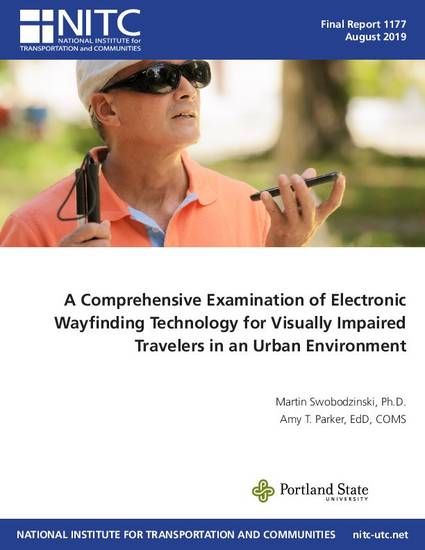
- Blind -- Travel -- Technological innovations,
- Smartphones,
- Blind -- Orientation and mobility -- Technological innovations
In this project, we distilled an inventory of smartphone-based electronic travel aid technology for the wayfinding of visually impaired travelers in an urban environment based on a thorough review of software marketplaces and the academic literature. Subsequently, we solicited structured input from domain experts and visually impaired individuals on their experiences and evaluations pertaining to personal telecommunication technology for safe and efficient wayfinding. The insights gained from this project are instrumental for the conceptualization and development of integrated route planning and guidance application that address the distinct information needs and expectations of individuals with a vision-related functional impairment. The very objective of our project is to provide pathways for improving the quality of life of people who experience disproportionate impediments to their mobility through inclusive pedestrian navigation in an urban environment.

This is a final report, NITC-RR-1177, from the NITC program of TREC at Portland State University, and can be found online at:
https://nitc.trec.pdx.edu/research/project/1177
The Project Brief associated with this research can be found at:
https://archives.pdx.edu/ds/psu/29376